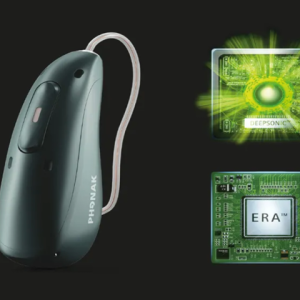
The UK government has bought its first quantum computer, with the Ministry of Defence (MoD) acquiring a British-built machine in the hope of speeding up the process of analysing large sets of data from sensors and other equipment.

With quantum computing still in its infancy, the purchase reflects an investment in the technology’s potential rather than its readiness to tackle a wide range of real-world problems, experts say. Nonetheless, the machine, known as the PT-1, will help the MoD with some tasks in the short term.
What can the Ministry of Defence quantum computer do?
Built by ORCA Computing, the PT-1 operates at room temperature and can be rack mounted alongside other classical computers. The price the MoD has paid for the computer has not been disclosed.
ORCA CEO Dr Richard Murray told Tech Monitor the system is able to quickly hand off tasks to classical computers, allowing the MoD to only use the quantum system for the most complex and challenging aspects of a task.
“The main application the MoD put forward is one of situational awareness,” Murray says. “They deploy lots of sensor devices, generating a ton of data that is complex to stitch together and they want to draw insight from that data which is hard to do with existing computational methods.”
The ORCA computer uses photons to optimise machine learning tasks including image analysis and decision-making, with MoD officials claiming it will help the department develop future data processing capabilities.
The machine comes with proprietary software that includes access to machine learning libraries such as PyTorch. After installation, the MoD says it plans to create programmes for the PT-1 in collaboration with partners in government and industry.
Murray told Tech Monitor the company aims to develop more advanced quantum computers that could perform tasks not possible with classical computers, but for now this would act as an “interim step” on that journey, providing extra processing power within an existing environment.
PT-1 quantum computer will deliver lower latency
ORCA says its platform is the first to include a ‘quantum memory’ allowing quantum computers based on single photons to become scalable. Photonic quantum computing does not require complex engineering such as advanced cryogenic cooling and vacuum, and as such is easier to integrate with existing hardware in a data centre environment without causing extra risks.
Stephen Till, fellow at the Defence Science and Technology Laboratory (Dstl), an agency of the MoD, said it is a “milestone for the MoD”, as having access to its own quantum computing hardware will “accelerate our understanding of quantum computing”. He said the machine operating at room temperature will also “give us the flexibility to use it in different locations for different requirements”.
“We expect the ORCA system to provide significantly improved latency – the speed at which we can read and write to the quantum computer. This is important for hybrid algorithms which require multiple handovers between quantum and classical systems,” Till says.
Does the Ministry of Defence need a quantum computer?
Professor James Davenport from Bath University, an expert in quantum computing and cryptography, described the ORCA machine as a good starting point, but that it was a long way off being a true quantum computer. He said its main use today would be in solving optimisation and large dataset problems.
“If I were sitting in the MoD with reduced resources and complex problems that need solving, asking whether these quantum computers could help with that wouldn’t be that ‘outside the box’,” he told Tech Monitor, adding that “it isn’t out of the ordinary for the MoD to be at the forefront of technology” and investing in new ideas from British companies.
Vincenzo Tamma, founding director of the University of Portsmouth Quantum Science and Technology Hub told Tech Monitor said the real benefit from these machines will come in the types of algorithms and software developed to run on them.
Dr Nathan Johnson, research fellow in silicon quantum devices at UCL, said the MoD investment in a Britishdevelopment quantum computer makes perfect sense, even if it has no immediate practical use, as it helps ensure the technology continues to develop.
“It is the right thing to do, but is not a breakthrough where you can say buying this technology gives us the ability to do all of these new things today,” he says. “It is an investment in the future and if ORCA turns out to be on to the right approach, that is great for the MoD, if not they still get experience in the technology at an early stage of development.”






